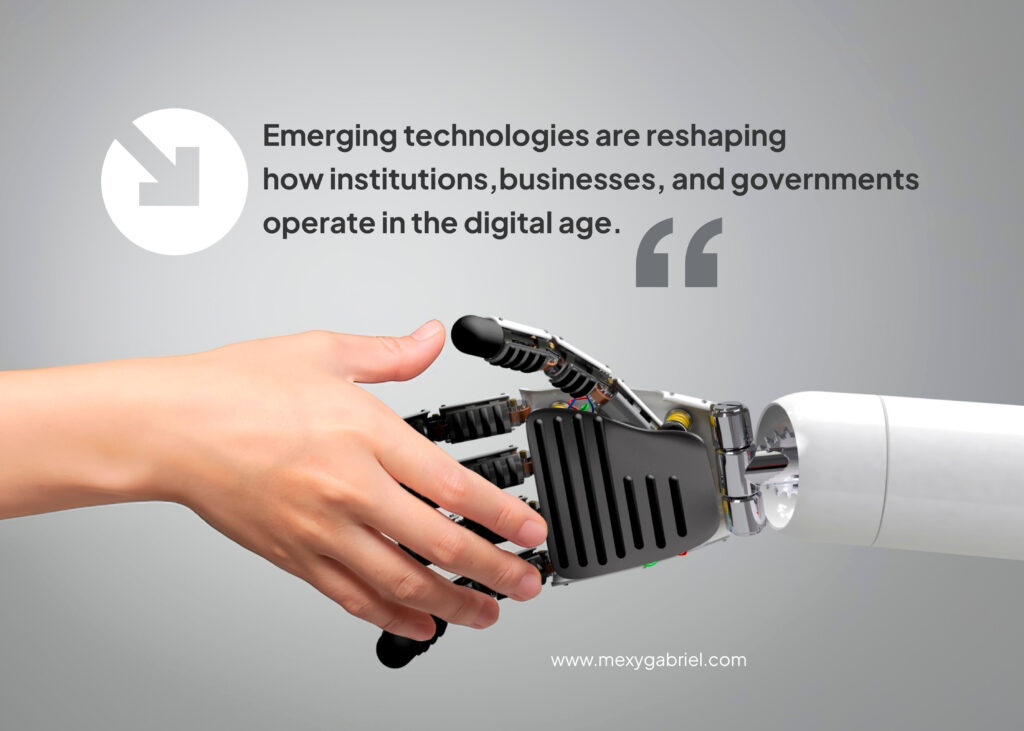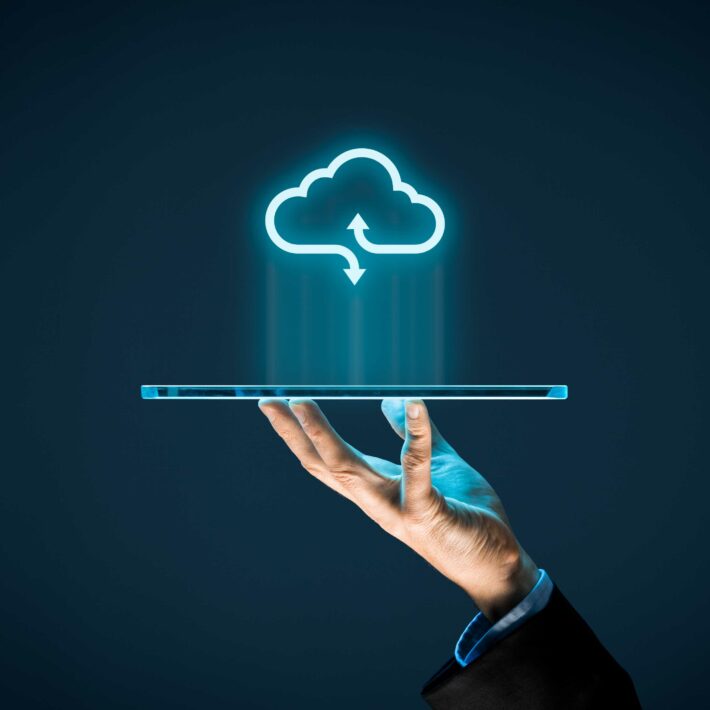The Future Is Now: 30+ Emerging Technologies Transforming Education, Governance, and Society
Emerging technologies are reshaping how institutions, businesses, and governments operate in the digital age. From artificial intelligence and big data analytics to 5G connectivity, blockchain, and smart campuses, these innovations provide powerful tools for efficiency, security, and growth.
In education, they enable personalized learning, paperless administration, and smart infrastructure management. In governance, they support e-governance platforms, secure digital identities, and data-driven policy-making. For research and innovation, they open doors to genomics, green energy, robotics, and quantum computing, offering opportunities to tackle complex challenges in health, climate, and economic development.
By integrating these technologies, universities and public institutions can position themselves as global leaders in innovation, delivering smarter services, securing sensitive data, and preparing students for the demands of the future.

Digital Transformation & Computing
- Artificial Intelligence (AI) & Machine Learning (ML): Systems that learn from data to make predictions, automate tasks, and improve decision-making.
- Generative AI: Tools that create new text, images, videos, or code, enabling innovation in education, media, and design.
- Quantum Computing: Ultra-fast computation using quantum physics, capable of solving problems beyond classical computers.
- Edge Computing: Processing data closer to where it’s generated (e.g., IoT devices) for faster, real-time responses.
- Cloud-Native Technologies: Scalable, flexible systems built with containers, microservices, and serverless infrastructure.
Data & Analytics
- Big Data & Predictive Analytics: Using massive datasets to identify patterns, forecast trends, and guide strategic decisions.
- Digital Twins: Virtual models of real-world systems (like cities or campuses) to test and optimize performance.
- Real-Time Data Processing: Immediate analysis of streaming data, crucial for security, healthcare, and financial systems.
Connectivity & Networks
- 5G and 6G Networks: High-speed, low-latency connectivity powering IoT, smart cities, and immersive applications.
- Satellite Internet: Space-based internet (e.g., Starlink) extending broadband to remote and underserved areas.
- Next-Gen Wi-Fi (Wi-Fi 6/7): Faster, more reliable wireless networks for dense environments like campuses.
Cybersecurity & Identity
- Zero Trust Security: A “never trust, always verify” model that protects data against insider and outsider threats.
- Decentralized Identity: Blockchain-based IDs that give individuals secure, verifiable digital identities.
- AI-Driven Threat Detection: Using machine learning to identify and neutralize cyber threats in real time.
Immersive Technologies
- Extended Reality (XR): Includes AR, VR, and MR, creating immersive environments for learning, training, and entertainment.
- Metaverse Platforms: Virtual, shared digital worlds for work, education, and social engagement.
- Holographic Displays: 3D visualizations without headsets, useful for teaching, medicine, and design.
Robotics & Automation
- Autonomous Vehicles: Self-driving cars, drones, and ships that move and operate without direct human control.
- Collaborative Robots (Cobots): Robots designed to work safely alongside humans in factories, labs, or classrooms.
- AI-Powered Drones: Used for surveillance, delivery, and emergency response.
Biotechnology & HealthTech
- CRISPR & Genomics: Advanced tools to edit genes and fight diseases.
- Wearable Health Tech: Smart devices that track vital signs and health conditions in real time.
- AI-Driven Drug Discovery: Accelerating the search for new medicines using machine learning.
- Digital Therapeutics: Software-driven treatments, including virtual care platforms and online therapy.
Energy & Environment
- Green Hydrogen: A clean energy source made from renewable electricity.
- Smart Grids: Intelligent electricity distribution systems that optimize power supply and demand.
- Carbon Capture: Technologies to capture and reuse carbon dioxide to fight climate change.
Finance & Web
- Blockchain: Secure, transparent digital ledger technology for transactions.
- Central Bank Digital Currencies (CBDCs): Government-backed digital money.
- Decentralized Finance (DeFi): Financial services without traditional banks, using blockchain.
- Tokenization: Converting real-world assets (like property) into tradable digital tokens.
Education & Governance Tech
- AI-Powered Learning Platforms: Adaptive systems that personalize education for each student.
- Smart Campuses: Digitally integrated universities using IoT, AI, and automation.
- E-Governance Systems: Platforms that digitize administration, records, and citizen services.
- Digital Identity in Governance: Secure IDs that provide access to services and authenticate users.
The pace of technological advancement is accelerating, and the institutions that embrace innovation today will define the future of education, governance, and society. Emerging technologies like AI, blockchain, smart campuses, 5G, and digital twins are not abstract trends—they are practical tools already reshaping how we learn, work, and live.
For universities, this means building smarter, paperless campuses, enabling personalized student learning, and securing sensitive academic data with world-class systems. For governments, it means driving transparent e-governance, efficient public services, and sustainable economic growth through digital transformation.
By adopting these technologies thoughtfully and responsibly, institutions can ensure they are not only keeping pace with change but also leading the charge into a smarter, more connected, and more resilient future.



Thank you the updates. Now i know the path i want to take!🙌
You’re most welcome! 🙌 we are glad the updates helped give you clarity. Wishing you success as you take this path—it’s only the beginning of greater things ahead! 🚀